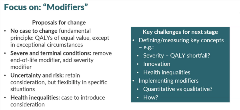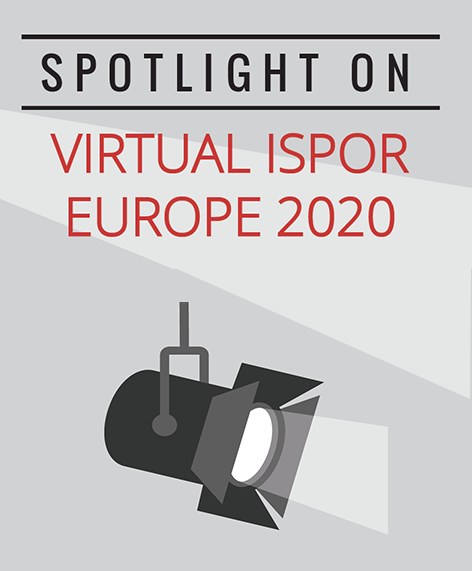How Guidelines Keep Up With Emerging Technologies and Developing Methods
Martin Vu, MPH, BSc and Koen Degeling, PhD, MSc, BSc, Cancer Health Services Research, The University of Melbourne, Melbourne, Australia
Economic evaluations are an integral part of health technology assessment (HTA), guided by strict guidelines on their conduct. But how do these guidelines keep pace with new types of treatments, evolving existing methods and arising novel methods, and the broader context of our changing world? Based on experiences from Ireland, Portugal, and the United Kingdom, this workshop discussed when and how guidelines should be revised, as well as the current methodological and normative challenges.
"Changes in the broader environment, such as economic challenges, changing policy objectives, and social issues may result in the need for guidelines to be developed."
An Appropriate Basis to Update Guidelines
As introduced by moderator Mark Sculpher, PhD, University of York, York, United Kingdom, there are many contextual developments that incentivize an update of guidelines. Healthcare technologies themselves may change, causing changes in the types of submissions. Flaws in methodologies may be addressed requiring updates of guidelines to reflect advances in science. But changes in the broader environment, such as economic challenges, changing policy objectives, and social issues may result in the need for guidelines to be developed.
In Ireland, changes in the evidence submitted in dossiers and methodological advances motivated guideline updates. Conor Teljeur, PhD, Health Information and Quality Authority, Dublin, Ireland indicated that this results in updates of the Irish guidelines about every 3 years. Updates in Portugal are less frequent, as the recent updates as discussed by Marta Soares, MSc, PhD, University of York, York, United Kingdom were the first in about 20 years. Ian Watson, MSci PGDip, National Institute for Health and Care Excellence (NICE), London, United Kingdom shared how a broad multistakeholder consultation is used in the United Kingdom to inform priority areas to be updated, which has resulted in the currently ongoing and biggest update ever in the NICE guidelines.
The Process for Updating Guidelines
The national agencies of Portugal, Ireland, and the United Kingdom take similar processes towards updating guidelines. A nonsystematic search of the literature, including guidelines from other countries, informs an initial proposal for the changes that are to be made to the guidelines. This proposal is then sent out for broad consultation by the public before the changes are mandated.
Teljeur emphasized the involvement of a multidisciplinary scientific advisory group, which includes industry representatives and patients, in drafting a proposal of the changes in the guidelines of the Health Information and Quality Authority (HIQA) in Ireland. Something that clearly distinguishes the United Kingdom from the other 2 countries is that NICE uses a broad consultation to identify priorities for updates.
Current Methodological and Normative Challenges
One of the major challenges faced by HTA agencies is a change in the type of evidence submitted. For instance, the HIQA in Ireland responded to the challenges imposed by single-arm trials in the latest revision of their national guidelines by explicitly stating that data from these studies can be used given that all best possible evidence and methods to estimate treatment effects have been exhausted and the assumptions clearly stated in submission.
"Adapting technology assessment evidence to the local context reflecting the Portuguese health system has been a key concern for the National Health System in Portugal."
Watson noted that “modifiers” are one area of specific interest in the ongoing update of the NICE guidelines. Modifiers are factors that influence or change the recommendations made and include aspects like disease severity and inequalities (Figure 1).
Figure 1. The Concept of “Modifiers” Used by NICE
In countries like Portugal where the country represents a smaller market for the pharmaceutical industry considering the population size of the country, adapting technology assessment evidence to the local context reflecting the Portuguese health system has been a key concern for the National Health System in Portugal. These new guidelines therefore mandated the identification of relevant evidence to the Portuguese context, reference case for methods of expert elicitation, the use of EQ-5D instrument for measuring generic health-related quality of life with Portuguese tariffs and validation of model predictions using Portuguese evidence or expert opinions.
"In response to both historical and emerging challenges, it is important for HTA agencies across Europe to ensure that current economic evaluation guidelines are fit-for-purpose within the current health systems and the process to design and formulate these revisions incorporates the input of a wide range of stakeholders."
National Guidelines for Economic Evaluations Today and Tomorrow
Methodological guidance for economic evaluations is well-established in many countries in order to standardize the approach in producing high-quality assessment of technologies across a wide range of health interventions. In response to both historical and emerging challenges, it is important for HTA agencies across Europe to ensure that current economic evaluation guidelines are fit-for-purpose within the current health systems and the process to design and formulate these revisions incorporates the input of a wide range of stakeholders. New guidelines for economic evaluations addressing the issues of the past represent a significant step forward for HTA agencies to improve reimbursement and coverage decisions for health technology, while safeguarding timely access to safe and effective medicines for patients.
Figure 2. Panelists (clockwise): Marta Soares, Conor Teljeur, Mark Sculpher, and Ian Watson.



